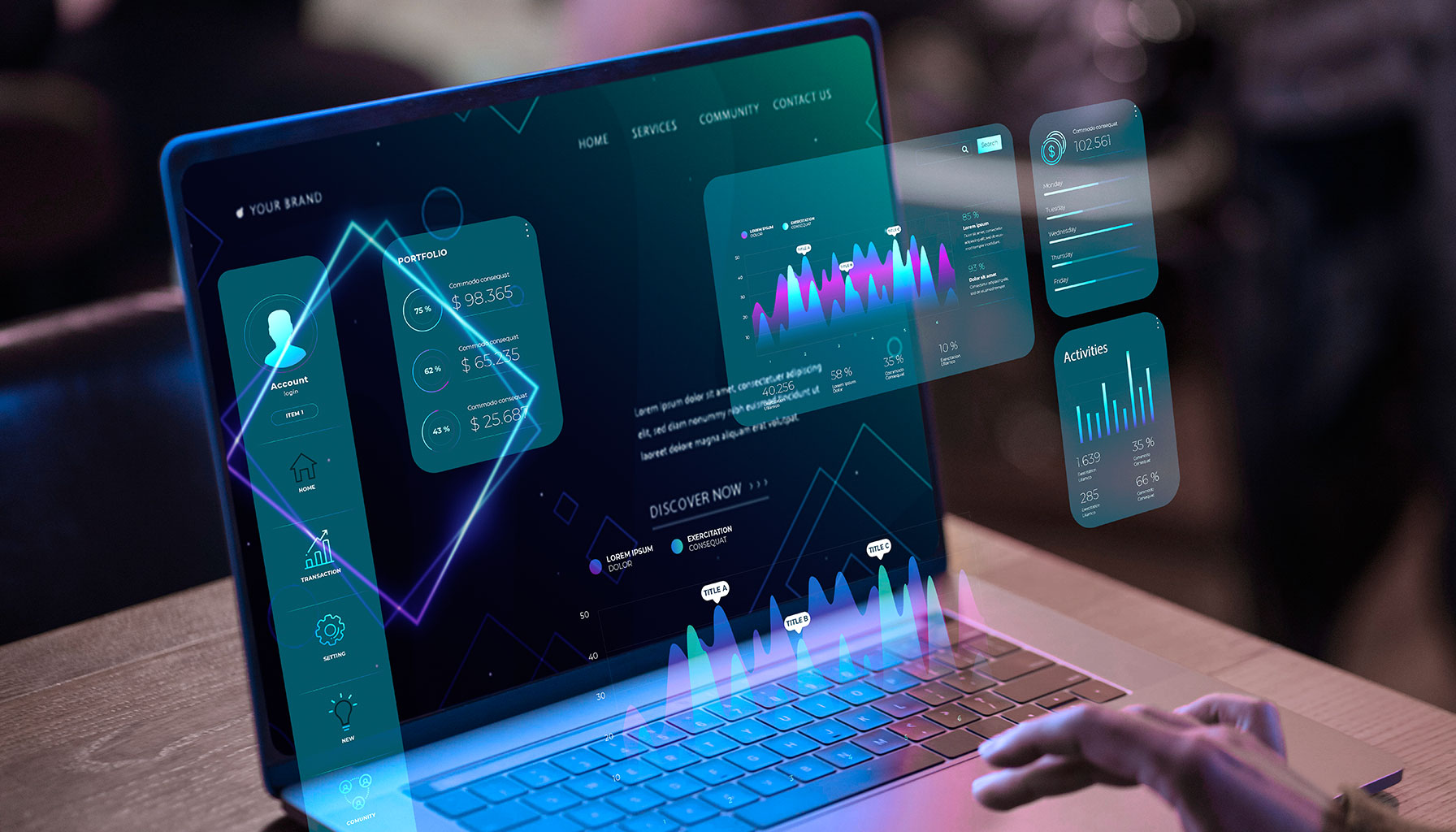Search engine optimization (SEO) is constantly evolving, with search engines like Google regularly updating their algorithms to provide users with better search results. As we approach 2025, some long-standing SEO practices are being challenged by new technologies, changing user behaviors, and more sophisticated search engines. For businesses and digital marketers, understanding these shifts and adapting their strategies is crucial to maintaining visibility and driving traffic. In this article, we will explore 13 shocking SEO realities that will redefine your strategy in 2025.
1. Content-Level SEO Is Not Enough Anymore
In the past, focusing on content-level SEO was the cornerstone of a successful SEO strategy. This typically involved optimizing on-page elements such as title tags, meta descriptions, headings, and keyword usage within the body of content. However, content-level SEO alone is no longer sufficient in 2025.
Google’s algorithm updates, particularly with the advent of AI and machine learning, have made it clear that context and intent behind the content are now more important than ever. Search engines no longer just look for keywords; they seek to understand the broader context of your content and how it aligns with user intent. This means that simply stuffing content with keywords will not help you rank. You need to create valuable, contextually relevant content that answers the searcher’s query in a comprehensive way.
To succeed in SEO in 2025, your content must align with semantic search principles. This includes ensuring that your content is thorough, addresses all aspects of the topic, and provides unique value compared to other pieces on the same subject. Search engines are increasingly looking at how well content satisfies user needs, rather than just how well it’s optimized for keywords.
2. Backlinks Are Losing Power—And You’re Not Ready for What’s Next
Think high-DA links are your golden ticket? Think again. Search engines now demand more than a strong backlink profile.
For years, Domain Authority (DA) and backlink profiles have been cornerstones of SEO strategies. Having a large number of high-quality backlinks was often the key to boosting search rankings. But as we head into 2025, domain authority links are just one small piece of the SEO puzzle.
Search engines are now focusing more on user experience signals such as dwell time, page speed, and mobile optimization, as well as how relevant a particular link is to the content. A high DA link may still be valuable, but it’s no longer the sole indicator of a page’s relevance and authority.
Additionally, Google’s algorithm updates now take into account link diversity, focusing more on relevance and quality over quantity. For example, a single backlink from a highly relevant, authoritative website may have more weight than dozens of backlinks from less relevant sources. Instead of solely focusing on DA, marketers should aim to build a natural, diverse backlink profile and prioritize strategic link-building.
3. Say Goodbye to Keyword Stuffing—Search Engines Have Moved On
The days of chasing keyword counts are over. If your strategy still relies on outdated keyword tactics, you’re already falling behind.
Once upon a time, keyword density was a crucial factor in ranking high on search engines. Websites would stuff their content with keywords in the hopes of boosting rankings. However, as search engine algorithms become more advanced, keyword quantity is no longer the key to success in SEO.
In 2025, the focus has shifted towards keyword relevance and semantic search. Search engines are now capable of understanding context and synonyms, making it possible to rank for a topic without explicitly using the same keywords repeatedly. Latent Semantic Indexing (LSI) and natural language processing (NLP) have allowed Google to better understand content that is related to a search query, even if the keywords aren’t used verbatim.
This means you should be focusing on creating content that thoroughly covers a topic and answers users’ questions, rather than forcing keywords into every sentence. Keywords should be used strategically, but the focus should be on providing valuable, relevant, and comprehensive content that satisfies user intent.
4. Written Content Is Dying—Adapt or Vanish from Search
Relying on blogs and articles? You’re betting on a sinking ship as videos, infographics, and interactive media take over the SEO game.
While written content has long been the backbone of SEO, its importance is gradually declining in 2025. In the past few years, we’ve seen a rise in multimedia content, including videos, podcasts, infographics, and other interactive media. As search engines evolve, they are increasingly prioritizing content formats that engage users in a more dynamic way.
Search engines like Google are now able to index and rank multimedia content such as video and audio, and platforms like YouTube, podcasts, and social media have become crucial parts of a content strategy. If your SEO strategy is heavily reliant on written content alone, it’s time to rethink your approach.
In 2025, businesses should embrace multimedia optimization and include video SEO, image optimization, and voice search strategies in their content plans. Providing a diverse range of content that can engage users in different ways will not only improve user experience but will also help increase visibility in search results.
5. Traditional Search Rankings Are Fading into Obscurity
If you’re still chasing blue links, you’re living in the past. SERP features and zero-click searches are dominating the future of SEO.
For many years, traditional blue link rankings—the standard search engine result snippets that show URLs, titles, and meta descriptions—have been the primary way users interacted with search results. However, these rankings are starting to become less significant as search engines evolve.
Zero-click searches, rich snippets, knowledge panels, and featured snippets are increasingly replacing traditional blue links in the SERPs. In 2025, Google’s goal is to provide users with immediate answers right on the search results page, reducing the need to click through to websites.
As a result, businesses need to optimize not just for traditional rankings but for on-SERP SEO as well. This includes optimizing for featured snippets, knowledge graph boxes, and people also ask sections. The focus is on capturing attention directly on the SERP, even before users click on your website.
6. On-SERP SEO Is Stealing Your Clicks—And You’re Letting It Happen
Ignoring on-SERP optimization? Your competitors are capturing traffic you didn’t even realize you were losing.
On-SERP SEO is becoming more important than ever as traditional search rankings take a backseat to more complex SERP features. As mentioned above, Google now displays a wide variety of on-SERP elements such as featured snippets, knowledge panels, and even local packs at the very top of the search results. These elements are a prime way for search engines to answer users’ queries without them ever having to leave the page.
In 2025, optimizing for on-SERP SEO will be just as important, if not more important, than traditional SEO tactics. By targeting featured snippets, answer boxes, image packs, and other SERP features, you can increase your visibility and capture more traffic. SEO strategies will need to incorporate tactics to ensure their content is featured in these high-visibility areas, such as structuring content for snippet optimization, using schema markup, and optimizing for rich answers.
7. Websites Are Dying—Here’s Where Your Audience Is Really Going
Your website is no longer the first stop for users. If you’re not investing in alternative platforms, you’re losing valuable leads.
The notion that a website is the central hub for all digital marketing efforts is being challenged in 2025. Social media platforms, apps, voice search, and instant answers are increasingly acting as the primary gateways for information discovery.
Mobile-first indexing, voice search optimization, and the increasing role of social commerce mean that your website may no longer be the first place users interact with your brand. In fact, platforms like Instagram, TikTok, YouTube, and even Google My Business may offer more immediate, engaging experiences than a website.
To adapt, businesses need to create a multi-platform SEO strategy that considers mobile optimization, social media signals, and local search optimization. Integrating your brand into multiple channels will ensure that you reach your audience wherever they search for you.
8. Brand Authority Will Crush Your Rankings If You Don’t Build It Now
Without strong brand authority, your content is invisible. Are you doing enough to establish yourself as an expert?
Brand authority has always been important, but in 2025, it will be more crucial than ever before. Google increasingly rewards brands that are recognized as experts in their fields. This is evident through the growing importance of E-A-T (Expertise, Authoritativeness, Trustworthiness), as well as the need for businesses to establish themselves as industry leaders.
To build brand authority, businesses should focus on consistently producing high-quality, authoritative content, engaging with their audience, and gaining recognition from other authoritative sources. Content marketing, social proof, and thought leadership will be key to building brand authority, as will cultivating trust through transparent practices and positive customer experiences.
9. Schema Markup Is Losing Relevance—Don’t Waste Your Time
Schema markup is fading fast. If you’re still clinging to it as a cornerstone of your strategy, you’re in trouble.
Schema markup has long been touted as an essential element of SEO, helping search engines understand the content on a page and return more accurate results. However, as AI and machine learning continue to evolve, schema markup may become less relevant. Google is becoming increasingly adept at understanding content contextually without needing additional structured data.
While schema markup can still provide benefits, such as enhancing rich snippets, its importance is being overshadowed by advancements in natural language processing and semantic understanding. In 2025, your focus should be on creating content that aligns with user intent and provides value rather than on heavy use of structured data.
10. Entity Optimization Is a Monster You Can’t Ignore
Entity optimization is the new SEO battlefield, but it’s more complex—and unforgiving—than ever before.
Entity optimization involves making sure your content and website align with identifiable entities in the search ecosystem (people, places, things, concepts). As semantic search advances, entities are becoming more important for ranking.
In 2025, entities will continue to play a critical role in SEO, but the complexity of entity optimization will increase. Marketers will need to ensure their content is connected to relevant entities in the search ecosystem, leveraging structured data, contextual relationships, and **AI-driven insights
11. Trust Signals Are Changing—And Backlinks Alone Won’t Save You
The rules of credibility have shifted. If you’re not mastering N-E-E-A-T-T, your SEO efforts are doomed.
In the past, backlinks were the primary measure of a website’s credibility. However, in 2025, search engines are evaluating trustworthiness through a broader framework. The N-E-E-A-T-T (Newsworthiness, Expertise, Experience, Authoritativeness, Trustworthiness, Transparency) model is becoming the benchmark for assessing a site’s reliability.
Google and other search engines are now looking at multiple signals, including:
- Newsworthiness: Is your content timely and relevant?
- Expertise: Does your content come from qualified professionals or experts?
- Experience: Do you demonstrate practical knowledge in your field?
- Authoritativeness: Are you cited by other respected sources?
- Trustworthiness: Do you provide accurate and verified information?
- Transparency: Is your business clear about ownership, data practices, and sources?
To thrive in 2025, brands need to build credibility not only through backlinks but also through comprehensive author profiles, accurate data, testimonials, user reviews, and a transparent online presence. A holistic approach to trust signals will enhance your content’s visibility and user confidence.
12. AI-Powered Search Is Coming for You—Are You Ready for the Takeover?
Conversational AI and voice search are taking over. If your content isn’t optimized for the future, you’re toast.
With the rise of AI-powered tools like Google Bard, ChatGPT, and Microsoft Copilot, conversational search is becoming a dominant force in SEO. Users are increasingly interacting with search engines in a conversational manner, asking natural language questions and expecting detailed, actionable responses.
In 2025, conversational search will influence how content is created and optimized. Voice search, chatbots, and assistive technologies are all powered by conversational AI, which demands content that mimics natural human dialogue.
To optimize for this trend, focus on:
- Answering questions directly in your content (FAQs work well).
- Structuring content for conversational tones and long-tail queries.
- Using tools like Google Search Console and AI analytics to identify conversational keyword opportunities.
Additionally, consider creating interactive content, such as chat-like interfaces or voice-enabled guides, to meet the expectations of users engaging with AI-driven platforms.
13. Google Is No Longer Your Only Problem—The SEO Universe Is Expanding
If you’re focused solely on Google, you’re ignoring the real opportunities in platforms like YouTube, TikTok, and Amazon.
For years, SEO was synonymous with Google. But as user behavior shifts and new platforms gain prominence, thinking beyond Google is critical for a successful SEO strategy in 2025. Platforms like YouTube, TikTok, Amazon, and Bing are carving out significant roles in how users discover content.
- YouTube SEO: With video content dominating, YouTube remains the second-largest search engine. Optimize video titles, descriptions, and tags while creating engaging content.
- TikTok and Short-Form Content: Short-form video platforms are essential for younger demographics. Use relevant hashtags and trends to improve discoverability.
- E-commerce SEO: Platforms like Amazon have their own algorithms. Optimizing product descriptions, images, and reviews is vital for online sellers.
- Bing and Emerging Search Engines: With Bing integrating AI technologies, it’s becoming a competitive search platform, especially for desktop users.
Diversification ensures that you capture your audience across different touchpoints, mitigating the risk of over-reliance on Google.
Conclusion: Survive the SEO Apocalypse by Adapting Now
The 2025 SEO landscape is unforgiving. Adapt, innovate, or prepare to be left behind in the digital dust
The SEO landscape in 2025 is fundamentally different from what it was just a few years ago. With AI advancements, multimedia dominance, and shifting user expectations, businesses can no longer rely on outdated tactics like keyword stuffing or solely chasing backlinks. Instead, adaptation and innovation are the keys to thriving in this new reality.
To summarize the key strategies:
- Go beyond traditional SEO and embrace semantic search and contextual content creation.
- Focus on brand authority and user trust, leveraging N-E-E-A-T-T principles.
- Diversify your SEO efforts to include multimedia content, on-SERP features, and platforms outside Google.
- Stay ahead of the curve with entity optimization and conversational search strategies.
The future of SEO is not just about rankings; it’s about delivering value to users in every interaction. By aligning with these 13 realities, you can redefine your SEO strategy and position your brand for long-term success





